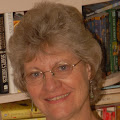Even after writing for years, do you still get stuck with “writer’s block?” What do you do to break through?
As a former journalist, having a deadline to meet helps me. I belong to a critique group that meets once a week, so I know I need to bring pages for that.
Another tip I’ve learned is to write a scene out of chronological order—write your ending first, or maybe you know what you want to write somewhere later in the story, but you don’t know how to get from where you are now to that scene. Go ahead a write it. It often will give you ideas of what you need to write to fill in the gaps.
Ask yourself 5 'what if' questions. For instance:
1. What if he/she decided to kill someone?
2. What if they won a million dollars?
3. What if they had quadruplets?
4. What if aliens landed in their garden?
5. What if they turned into a frog?
Apparently, Stephen King plays a variation of this game called, “Wouldn't it be funny if…” to come up with his horror ideas.
In Zen in the Art of Writing, Ray Bradbury describes a kind of collage of words. He would make a list of nouns, i.e.: the Lake, the Carnival, the Old Woman, the Foghorn. Referring back to the list later, he frequently found inspiration for a story (and quite often, the noun pair became the title). Interesting aside: his short story “The Foghorn, became the seminal prehistoric-monster movie “The Beast From 20,000 Fathoms.”
I’ve also done a similar exercise: make a list of nouns and a list of verbs. Randomly pair them to come up with strong actions or descriptions.
What are your tricks for breaking through that brick wall?
 |
| Shared by Heidi M. Thomas. A native Montanan, Heidi now lives in North-central Arizona where she blogs, teaches writing, and edits. Her first novel, Cowgirl Dreams, is based on her grandmother, and the sequel, Follow the Dream, won the national WILLA Award. The next book in the series, Dare to Dream, and a non-fiction book Cowgirl Up! A History of Rodeo Women, have recently been released. Heidi has a degree in journalism and a certificate in fiction writing. |



I do a lot of writing in my head when other tasks keep me away from my WIP. This works especially well when I'm doing mindless jobs like dishes or vacuuming -- or lying in bed, staring at the ceiling, when the body is ready for a good night's sleep and the head isn't cooperating. Putting my characters in a scene, I turn my overactive mind loose, and sometimes great ideas that had never occurred to me in a structured writing environment play out before my wide-open eyes. This may be a bit unconventional, but it works for me.
ReplyDeleteLike Linda, I'm also a 'head writer'. It's about the characters for me, and I listen to them talk.
ReplyDeleteI work on creative hobbies to get the imagination flowing. I've found working a craft, like making jewelry, that I can finish is a short amount of time breaks up the tedium and recharges the imagination for the long haul.
ReplyDeleteThe trick the worked the best for me was to write 500 or 1,000 words a days, even if it was terrible and would never see the light of day. I might be able to sift a paragraph or two out of the mess that would move the story forward. Note that I said 'worked' ... that was in the past. Now I just take a nap.
ReplyDeleteYes! Daydreaming, napping or doing puzzles is NOT being lazy for writers. It's called creativity. Thanks!
ReplyDeleteYeah, I listen to my characters talk too. Sometimes I wish they'd shut up!
ReplyDeleteI tried to leave a comment and it disappeared, so I'll try again! :) Thanks so much for this post! I am working on my first novel and I have had an awful time trying to get started. I will start out with an idea for a beginning, change my mind, scrap it and start over. I keep trying to write from beginning to end. That works on short stories, but it seems to be very problematic for a novel. I like the idea of writing a future scene and connecting it later. That may work and help me get some writing done and help decide the beginning. Thanks again! :)
ReplyDeleteI have Tumblr and Pinterest accounts, and sometimes I'll see a picture that "fits" the story I'm working on. Or one that gives me inspiration for a scene, or maybe even another story. That visual boost often helps.
ReplyDelete